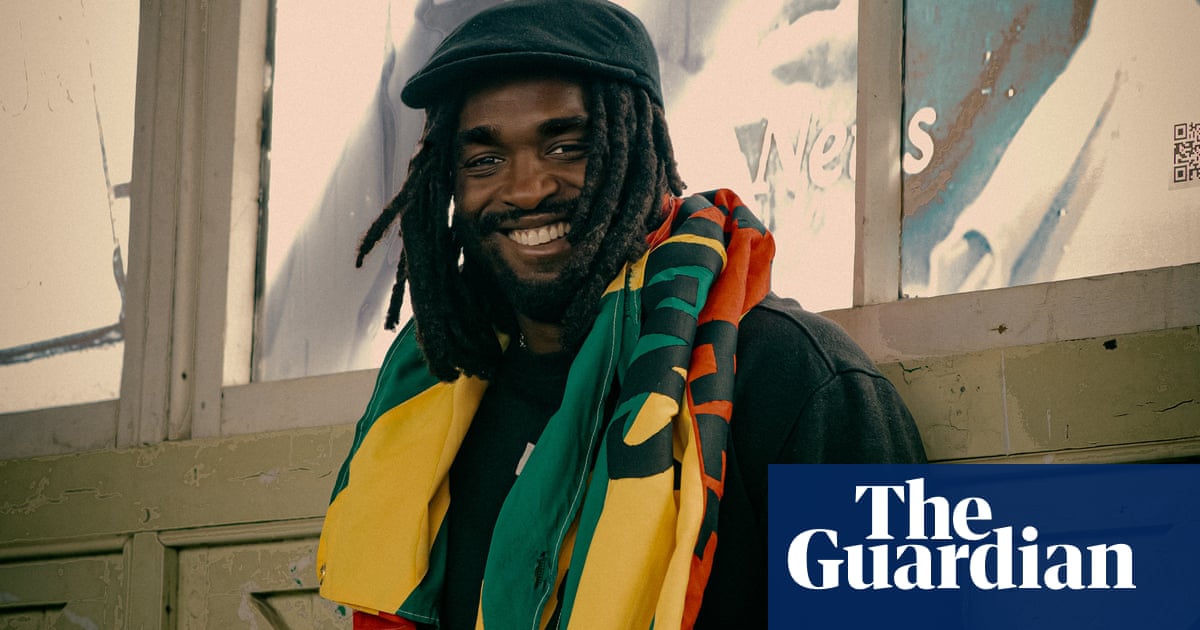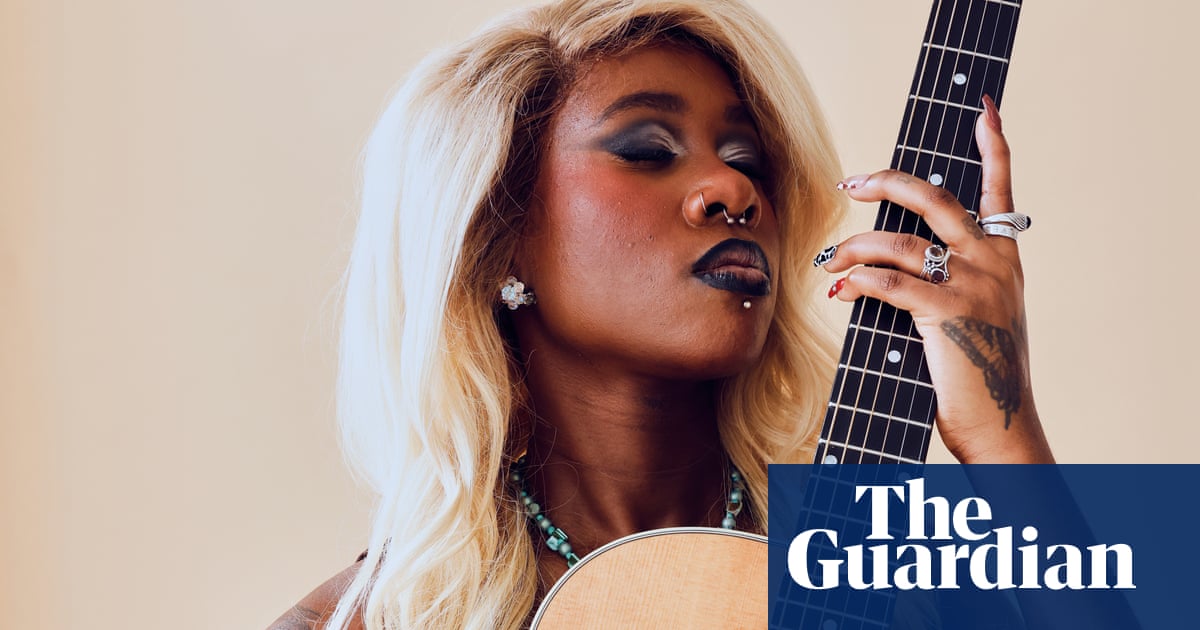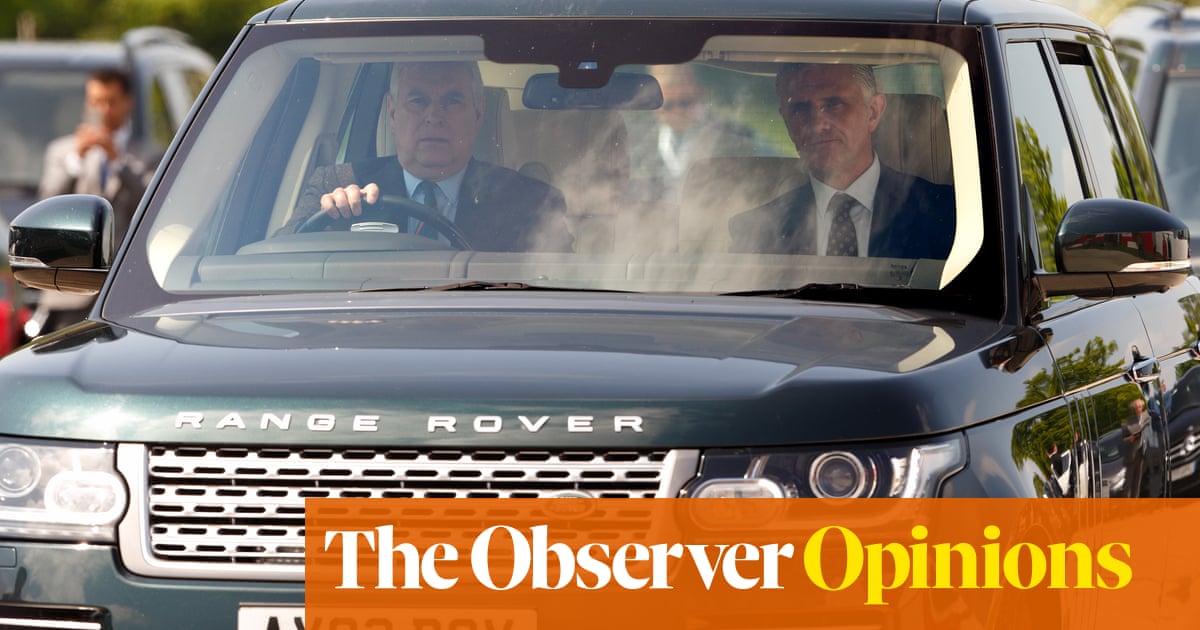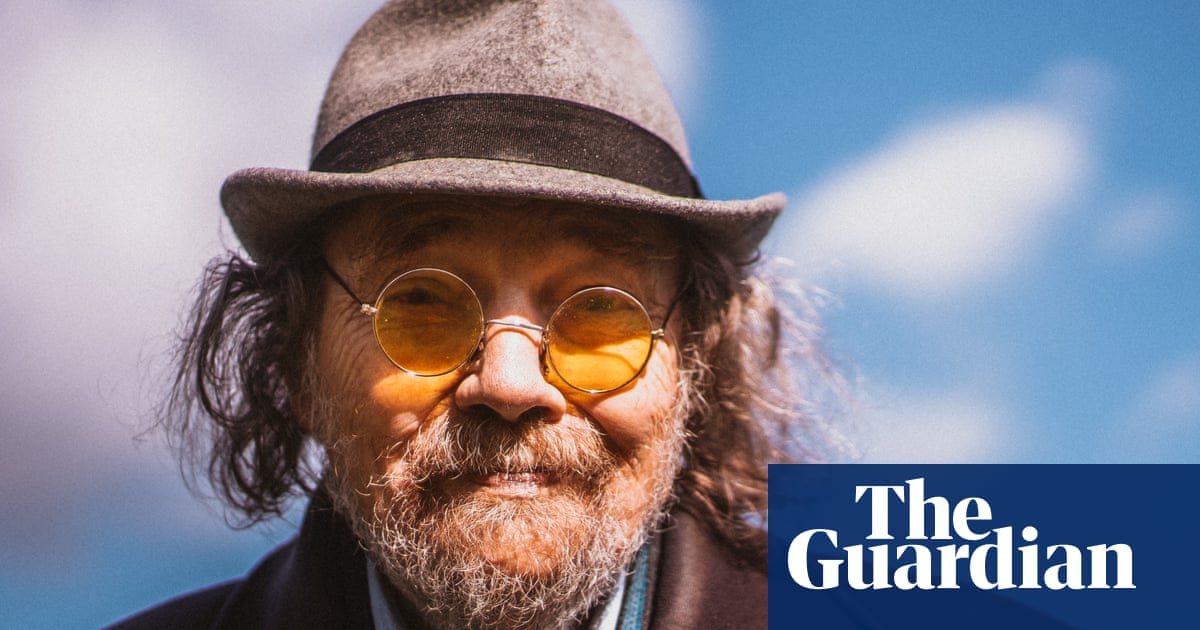
Hak Baker is harking back to the east London of his childhood, before the oat milk lattes and experiential advertising creatives moved in. “Old boys taking me boxing, or to the scrap yard to flip tyres for 40 quid: that stuff gave me a sense of belonging,” he says. “But now when I look out my window, it’s just not the same. That old guard is being priced out, and if you say hello to someone in the street, they look at you like you’re weird. That’s not where I came from. Not at all.”
Gentrification is one of the glum topics on the singer-songwriter’s debut album World’s End FM, alongside a host of others: colonialism, surveillance, depression. Then there are joyous songs like Doolally, where Baker flirts and boozes around a party sounding like the Streets on Fit But You Know It. Few other British albums this year are as vibrant, and true to life’s contradictions. “When people are low and it feels like world war three is on the balance, it’s hard to believe in yourself,” he says of its paradoxically cheery end-of-days vibe. “But if we’re all gonna die, I don’t want to spend the time being sad about it.”
Born to Jamaican and Grenadian parents, Baker was raised on the Isle of Dogs, singing in church and raising his mother’s spirits after long shifts as a social worker. As a teen, he discovered grime via MCs at his local youth club (alongside one Dizzee Rascal), before finding his own schoolyard fame in rap collective Bomb Squad, a way “to be with your friends as much as possible – you felt safe in that bubble of brotherhood”.
In his mid-twenties, though, Baker was jailed for two years for robbery. “Where we’re from, you only know about keeping it moving, trying to provide for your family,” he says. “Prison gave me time to assess what I actually wanted for myself. If you’re not doing that in jail, then what the fuck are you doing?”
Inside, Baker learned the guitar, and having fallen for the wistful acoustics of British band Daughter, he coined his own genre, G-Folk, as a way to tell stories in his infectious cockney cadence. “I felt I could encapsulate the world of working-class people. It’s always shit, it’s always hard, but we still hold on to the idea of working together for a better place to survive. You never know; one day, whoever runs the country might actually listen to us.” But he doesn’t suggest that he and his people are always unified. Windrush Baby explores the heartache of cultural displacement: his mum crops up to complain that black Britons have “let go of the very strong values that we used to have”, but the song welcomes his burgeoning black audience, coming around to a genre-hopping sound. “A lot of black people are scared to back something that they don’t see as strictly ‘black’, like grime or drill. But rock and blues came directly from us and our struggles too. This is a way for me to connect.”
Baker has himself connected with other rowdy, socially conscious troubadours, and having recently supported Pete Doherty at the Royal Albert Hall, he’ll be appearing at Jamie T’s Finsbury Park all-dayer in June. “We went to the pub, got leathered, tried to make a tune, and just did that a few times until we were pals,” he says of Jamie T. “Pete was similar; he loved Wobbles on Cobbles [a song Baker released in lockdown] and invited me to support one of his gigs. He took one look at me backstage and went: ‘Cor, you’ve got some demons, ent ya?’ Even down to him coming onstage with me at Glastonbury last year, he’s always had my back.” Is there any chance of a potential supergroup between the three? “Oh, yeah, definitely. En route, I reckon.”
World’s End FM uses the framing device of Baker as a pirate radio DJ hosting a show, and on the closing track The End of the World, his friend Jack calls in to discuss the challenge of rebuilding himself after his mother’s suicide: recognition that amid the rabble-rousing East End defiance, it’s not always easy for men to keep calm and carry on. “Young men especially need a place to home in [on] their aggressions. As kids, trauma bonded us, but I think [aggression] creeps in more when we grow up and can’t rely on each other as much as we used to. It can be really sad and difficult for the lads.”
He hopes that his emphasis on community will encourage people to open up, and has faith in his generation to make a better world. “We are the hard workers, the cog-turners,” he says. “The old school are on their knees, begging not to be slayed.” Just as he does on his album, though, he quickly pricks any pomposity. “I don’t want to come across as Mr Billy Big Bollocks though! I just want to show some love.”












